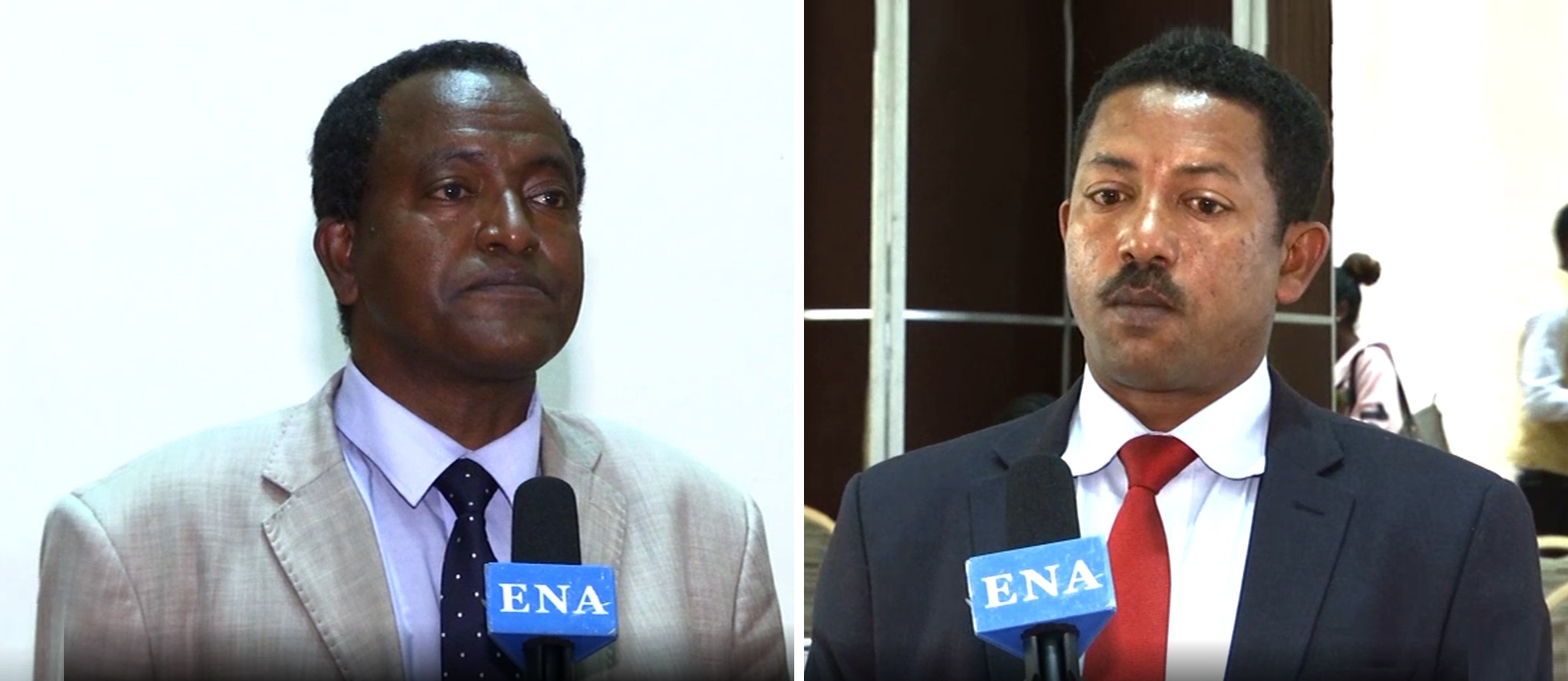Scholars Warn Gov't to Exercise Caution in Signing Agreements, Learn from Treaty of Wuchale - ENA English
Scholars Warn Gov't to Exercise Caution in Signing Agreements, Learn from Treaty of Wuchale

Addis Ababa February 12/2013 (ENA) As a nation tricked into signing the dubious Treaty of Wuchale which led to the Battle of Adwa over a century ago, Ethiopia should take lessons from that and be meticulous to avoid similar mistakes, scholars advised.
The Treaty of Wuchale was signed on May 2, 1889 between the empire of Ethiopia and the kingdom of Italy to promote friendship and trade among the two countries. However the difference between the Italian and the Amharic versions, particularly Article 17 created disagreement that resulted in the abrogation of the treaty by Menelik II in 1893.
In an exclusive interview with ENA, Authority for Research and Conservation of Cultural Heritage Deputy Director Abebaw Ayalew said Italy’s principal objective in signing the treaty of Wuchale had one end, and that was to establish a protectorate over Ethiopia.
“Wuchale was merely an immediate cause for the Battle of Adwa,” he said, adding that “war was unavoidable between the two countries because from the very beginning Italy’s interest was to make Ethiopia its colony, and Ethiopia would not accept that.”
Even though Menelik demanded the rectification of trickery of the Italians while translating the Amharic version into Italian several times, the Italians insisted on retaining Article 17 of the Italian version and that led to the abrogation of the treaty on the Ethiopian side in 1893, the historian elaborated.
According to him, Ethiopia has become victim of indecent treaties at various times. “The Treaty of Wuchale was not the only one, you can take also the Treaty of Adwa signed between Egypt and Ethiopia in 1884.”
The Treaty of Adwa, also called Hewett Treaty was another dubious agreement signed between Britain, Egypt and Ethiopia at Adwa on 3 June 1884, and indirectly started a new conflict between Ethiopia and Italy.
“This generation should understand that Ethiopia is a country that has enemies which conspire to hoodwink it. So, we should be very careful while negotiating treaties that involve our resources and the rights to use them,” the scholar stressed.
Addis Ababa University External Relations, Partnership and Communications Director, Ahmed Hassen said the Treaty of Wuchale was aimed at achieving mutual interest. Unfortunately, several things complicated the reality.
The different versions of Article 17 finally changed the direction of the agreement, he noted, and added that “it favored the Italians and reduced Ethiopia directly or indirectly to a level of protectorate or colony.”
Not to repeat same mistakes with regard to agreement, Ethiopia needs to have “diplomatic strength and understanding as well as ability to look into details of agreements from the perspective that could benefit us and at the same based on the principle of give and take,” the scholar suggested.
Professor Ahmed Zekaria of Addis Ababa University said on his part the victory of Adwa is very symbolic and “we have to learn our lessons and pass it to the youngsters.”
He pointed out that Ethiopians should avoid minor misunderstandings and stand in unity in the face of adversity and enemies.
“The Battle of Adwa was forced on us as they were trying to conquer us. But we defeated them. We defeated them because we were united. The same thing would happen again. If you are threatened, you have to respond. But with the wider perspective in mind, you have to patiently negotiate first before jumping into bloody war,” the professor concluded.
Patiently negotiating on issues related to the Grand Ethiopian Renaissance Dam, Ethiopia executed the first round filling of the dam on July, 2020 GERD. Despite the crude diplomacy of the Trump administration and internal challenges, the country went ahead with negotiations and also carried on the filling in line with the Declaration of Principles 2015.
At present, Ethiopia is getting ready for the second round of filling and power generation.
However, Egypt has left no stone unturned and uses Machiavellian diplomacy to force Ethiopia sign a treaty that denies its sovereign rights to the waters of Abay.
The scholars, however, believe that lessons should be learned from the Treaty of Wuchale and others while reaching agreement on GERD with downstream countries.